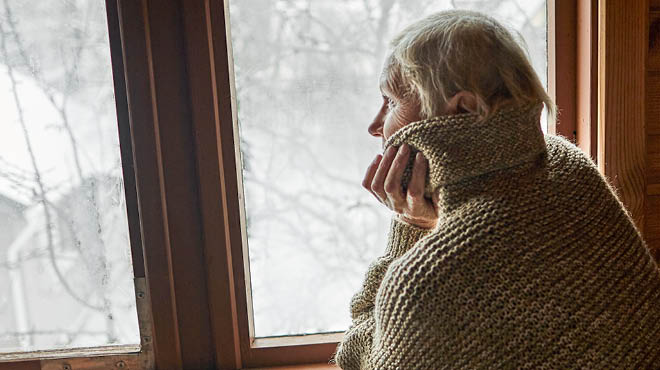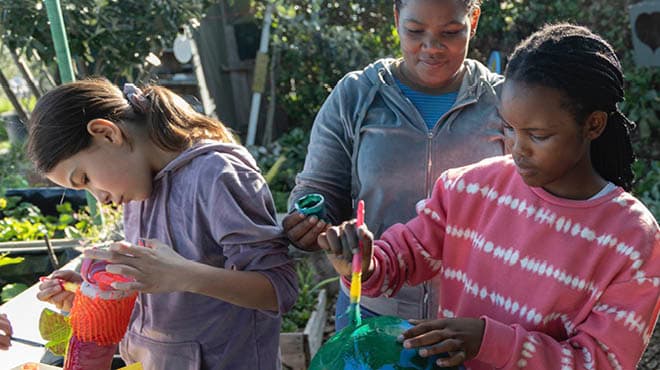Recent Posts
-

-
 Speaking of HealthUnderstanding autism: The path to diagnosis, awareness and supportApril 24, 2024
Speaking of HealthUnderstanding autism: The path to diagnosis, awareness and supportApril 24, 2024 -

Manage your stress so it doesn’t manage you this summer

Many kids and their families look forward with excitement to summer and picture long summer days of ease and contentment. The reality is that while summer should usher in a time of minimal stress, it often brings different kinds of stress.
While stress can't be eliminated, it can be better controlled with these tips:
Practice good sleep hygiene.
Summertime hits, and sleep schedules often are altered when kids are going to bed at different times each night. This results in some kids sleeping in six to seven hours past their normal school year wake time. Studies have shown that a lack of sleep and erratic sleep schedules can influence stress.
The most important sleep hygiene measure is to maintain a regular wake and sleep pattern seven days per week. While most people don't like the idea of waking to an alarm during the summer, it will help with the summer sleep cycle.
Another measure to improve sleep involves screen time. The use of screen time before bed, which includes television, computer, smartphones and tablets, has been shown to decrease melatonin, the hormone produced by the body to help regulate sleep. If melatonin production is suppressed, sleep is negatively affected. Increased screen time has been the culprit of many lost hours of sleep for children and adults.
Screens act as a stimulant before bed, alerting the brain rather than relaxing the brain. Most of us wouldn't allow our child to have a cup of coffee before bed, yet allow multiple screens in the bedroom. For good sleep, it is recommended that families consider the practice of putting the electronics to bed 30 to 60 minutes before bedtime for kids to relax and wind down.
Cultivate a sense of humor.
A good laugh doesn't just lighten a mood, it also lowers cortisol, the body's stress hormone. Letting out a giggle boosts those feel-good brain chemicals called endorphins. A deep chuckle relaxes your muscles and lowers stress hormones. In other words, a big unrestrained burst of laughter could be thought of as a massage for your inside. Families can find ways to laugh together by watching comedies, reading comics and helping each other to find the funny in life. One of the most essential keys, in my opinion, is to surround yourself with people who also seek out and embrace the humor in life.
Strengthen family time through play.
Strong family connections help children to manage stress better. The best way to improve that connection is through play. Physical activity plays a big part in helping kids manage stress. If you can incorporate physical activity, play, and family together, you are providing what I call a super-charged stress buster.
Play as a form of physical activity has a key role in reducing and preventing the effects of stress. With summer vacation here, there are so many opportunities to play as a family.
Here are a few easy activities to incorporate into your schedule:
- Play some music and have a dance fest.
- Take the bikes on trails in your area or around your local neighborhood.
- Geocache around your town. Geocaching is an outdoor recreational activity in which participants use a GPS to locate hidden treasures. Apps can be downloaded on any smartphone. There are hundreds of caches places on trails and around communities waiting to be found by families who like to treasure hunt.
- Try out a kayak or canoe. Many communities located near water have rent kayaks, canoes, paddleboards and fishing equipment. These all are activities that even young kids can try out.
- Walk your dog and explore new areas.
- Have a campfire, and play party games as a family.
- Free activities, such as tennis, volleyball and disc golf are great, because most communities have courts. Directions for these activities can be found online.
Good sleep hygiene, cultivating humor and playing as a family may not erase stress, but all three methods are essential for managing and reducing stress. When parents use these simple methods to manage stress, they are modeling healthy ways for their children to manage stress not only in the present, but for a lifetime.
Janice Schreier, is a psychotherapist in Psychiatry & Psychology in La Crosse, Wisconsin.



